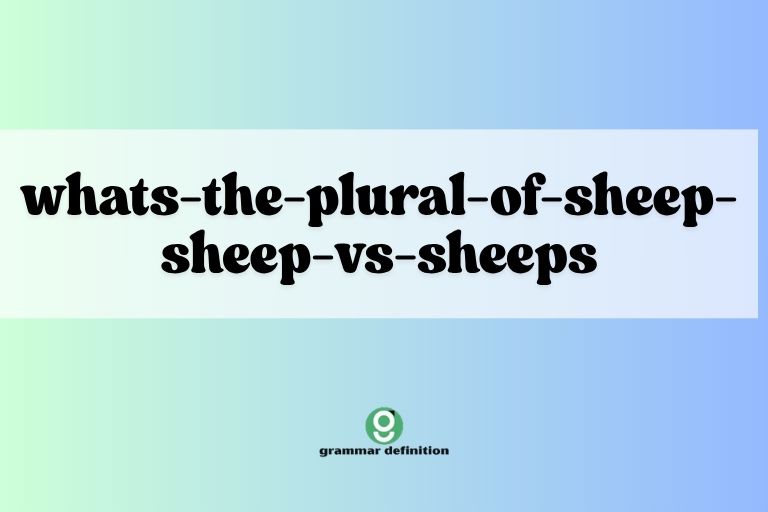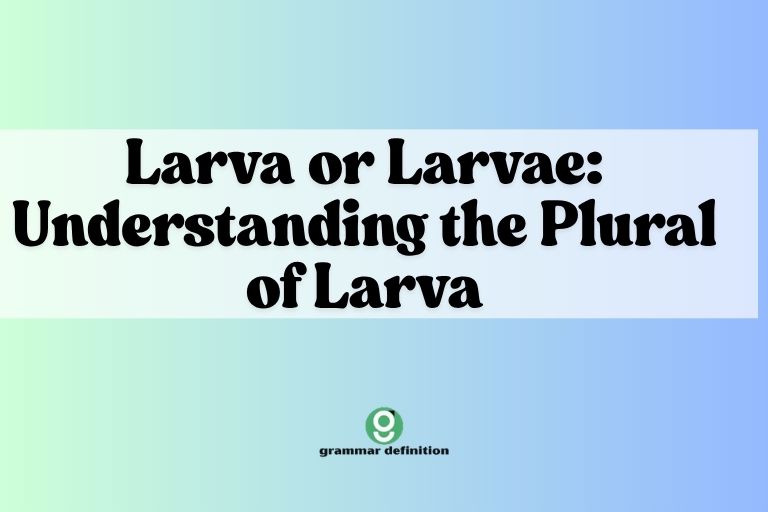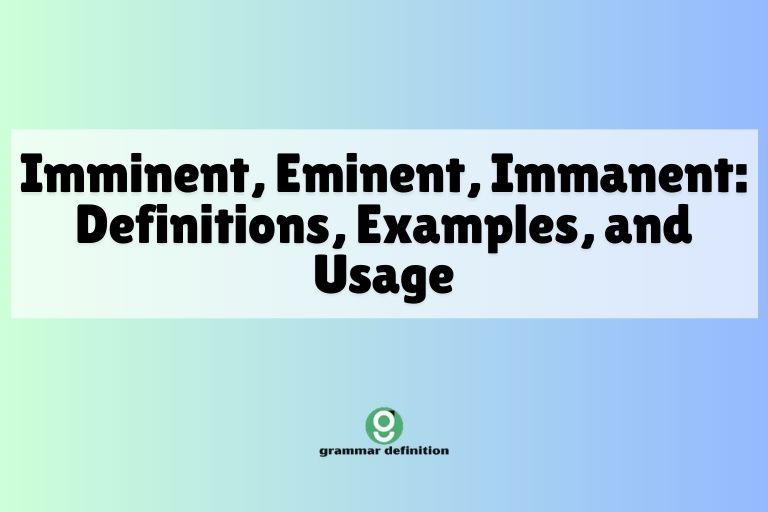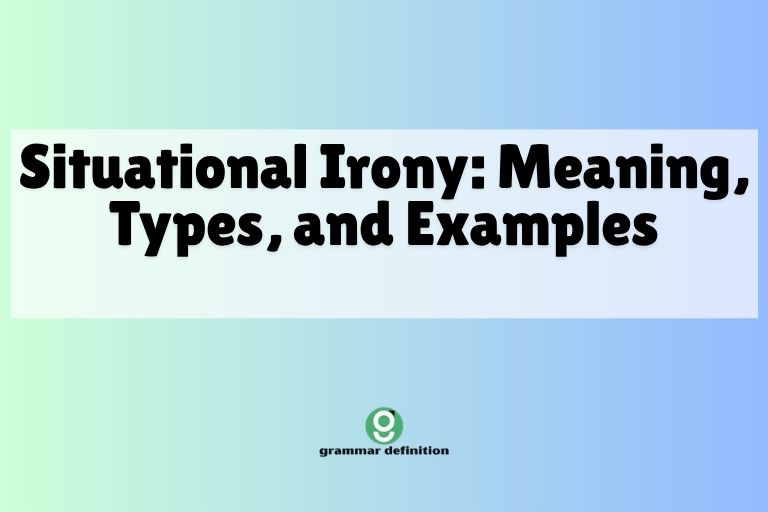Hero or Heroes: Mastering the Plural of “Hero”
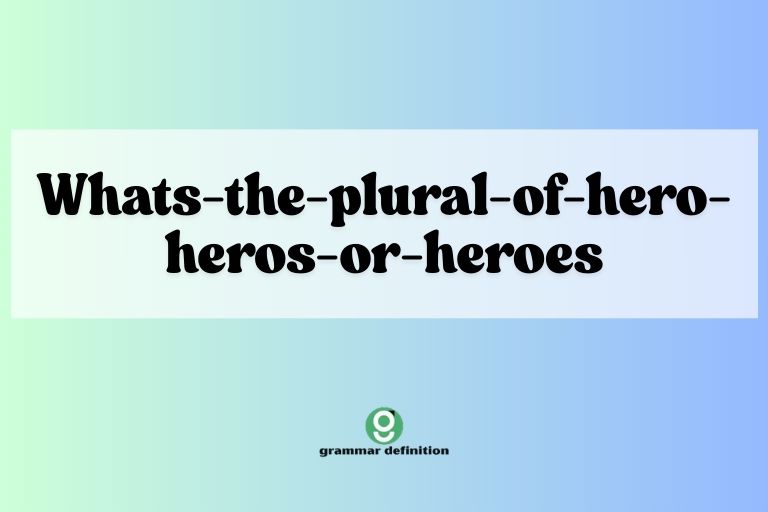
Understanding how to form the plural of nouns is a fundamental aspect of English grammar. While many nouns simply add an “-s” to become plural, others, like “hero,” follow different rules.
Mastering these rules not only enhances your writing accuracy but also improves your overall communication skills. This article delves into the intricacies of forming the plural of “hero,” comparing “heros” and “heroes,” and providing a comprehensive guide to ensure you use the correct form.
Whether you are a student, a writer, or simply someone looking to refine their English, this guide will equip you with the knowledge and practice needed to confidently navigate this grammatical nuance.
This article is designed for English language learners, writers, students, and anyone who wants to improve their grammar skills. It provides clear explanations, numerous examples, and practice exercises to help master the pluralization of “hero.”
Table of Contents
- Definition of Hero and its Grammatical Role
- Structural Breakdown: Why Not Just Add “-s”?
- Nouns Ending in “-o”: A Broader Perspective
- Examples of “Hero” and “Heroes” in Sentences
- Usage Rules: When to Use “Heroes”
- Common Mistakes to Avoid
- Practice Exercises
- Advanced Topics: Historical Linguistics
- Frequently Asked Questions
- Conclusion
Definition of Hero and its Grammatical Role
A hero is a person admired for their courage, outstanding achievements, or noble qualities. The word originates from the Greek word hērōs, referring to a demigod or a person of exceptional bravery. In modern English, “hero” can refer to anyone who displays remarkable acts of selflessness, bravery, or skill. Understanding its grammatical role is crucial for proper usage.
Grammatically, “hero” functions as a noun, specifically a countable noun. This means it can be singular (“a hero”) or plural (“many heroes”).
The correct plural form is essential for accurate and effective communication. Using the incorrect plural can lead to confusion or sound unnatural to native English speakers.
Structural Breakdown: Why Not Just Add “-s”?
While many English nouns form their plural by simply adding “-s” (e.g., “cat” becomes “cats,” “dog” becomes “dogs”), some nouns ending in “-o” require “-es” to form the plural. This is due to historical phonetic reasons and the influence of other languages, particularly Spanish and Italian, on English vocabulary.
The addition of “-es” often helps maintain the pronunciation and flow of the word.
The rule for nouns ending in “-o” is somewhat inconsistent, but a general guideline is that if the “-o” is preceded by a vowel, you typically add “-s” (e.g., “radio” becomes “radios,” “studio” becomes “studios”). However, if the “-o” is preceded by a consonant, you usually add “-es” (e.g., “potato” becomes “potatoes,” “tomato” becomes “tomatoes”).
“Hero” falls into this latter category.
Nouns Ending in “-o”: A Broader Perspective
Nouns ending in “-o” can be categorized into several groups based on their pluralization patterns. Understanding these patterns can help you predict the correct plural form for unfamiliar words.
Nouns Ending in “-o” That Take “-es”
This is the category that “hero” belongs to. These nouns generally have a consonant before the “-o” and follow the “-es” pluralization rule.
Nouns Ending in “-o” That Take “-s”
These nouns often have a vowel before the “-o” or are shortened forms of longer words. They generally follow the “-s” pluralization rule.
Nouns Ending in “-o” That Can Take Either “-s” or “-es”
Some nouns ending in “-o” can take either “-s” or “-es” in the plural, with both forms being considered correct, although one form might be more common or preferred. Examples include “mosquito,” which can be “mosquitos” or “mosquitoes,” and “volcano,” which can be “volcanos” or “volcanoes.”
Examples of “Hero” and “Heroes” in Sentences
The following examples illustrate the correct usage of “hero” and “heroes” in different contexts. Pay attention to how the singular and plural forms change the meaning of the sentence.
The table below contains usage of “hero” and “heroes” in the context of bravery and courage.
| Singular (“Hero”) | Plural (“Heroes”) |
|---|---|
| The firefighter was hailed as a hero for rescuing the child. | The firefighters were hailed as heroes for rescuing the children. |
| Every soldier dreams to be a war hero | Many soldiers become war heroes. |
| My dad is my hero. | My dad and his friends are my heroes. |
| She considered her doctor a hero for saving her life. | The doctors were considered heroes for their work during the pandemic. |
| He acted as a hero when he stopped the robbery. | They acted as heroes when they stopped the robbery. |
| In the movie, the main character is a reluctant hero. | The movie featured many unsung heroes. |
| The community recognized him as a local hero. | The community recognized them as local heroes. |
| The athlete became a national hero after winning the gold medal. | The athletes became national heroes after winning the gold medals. |
| The police officer was seen as a hero in the community. | The police officers were seen as heroes in the community. |
| The anonymous donor was a hero to the struggling family. | The anonymous donors were heroes to the struggling families. |
| He played the role of the hero in the school play. | They played the roles of the heroes in the school play. |
| The coach inspired the team to play like a hero. | The coaches inspired the teams to play like heroes. |
| She wrote a book about the life of a hero. | She wrote a book about the lives of heroes. |
| The teacher was a hero to her students. | The teachers were heroes to their students. |
| The volunteer was a hero to the homeless shelter. | The volunteers were heroes to the homeless shelter. |
| The inventor became an overnight hero. | The inventors became overnight heroes. |
| The scientist was hailed as a hero for his discovery. | The scientists were hailed as heroes for their discoveries. |
| The artist was seen as a hero in the art world. | The artists were seen as heroes in the art world. |
| The musician was a hero to his fans. | The musicians were heroes to their fans. |
| The activist was a hero to the marginalized community. | The activists were heroes to the marginalized community. |
| The journalist was a hero for uncovering the truth. | The journalists were heroes for uncovering the truth. |
| The politician was seen as a hero by his supporters. | The politicians were seen as heroes by their supporters. |
| The leader was a hero to his people. | The leaders were heroes to their people. |
The table below contains usage of “hero” and “heroes” in the context of fictional characters.
| Singular (“Hero”) | Plural (“Heroes”) |
|---|---|
| Superman is a classic comic book hero. | The Avengers are a team of Marvel heroes. |
| Harry Potter is the main hero of the series. | The X-Men are a group of mutant heroes. |
| The protagonist of the story is a flawed hero. | The story featured many mythical heroes. |
| Link is the hero of Hyrule in the Legend of Zelda. | The Justice League consists of several DC heroes. |
| Batman is a dark and brooding hero. | The Teen Titans are a team of young heroes. |
| The hero of the novel faces many challenges. | The novel celebrates the adventures of legendary heroes. |
| Luke Skywalker is a famous science fiction hero. | The Power Rangers are a team of colorful heroes. |
| The animated series features a new hero each episode. | The animated series features a team of environmental heroes. |
| The video game allows you to play as a hero. | The video game allows you to play as a team of heroes. |
| Wonder Woman is an iconic female hero. | The Guardians of the Galaxy are a group of cosmic heroes. |
| The myth tells the story of a legendary hero. | The myth tells the story of legendary heroes. |
| The movie portrays the hero’s journey. | The movie portrays the journeys of multiple heroes. |
| The comic book introduces a new hero. | The comic book introduces a team of new heroes. |
| The fairy tale has a brave hero. | The fairy tale has a group of brave heroes. |
| The legend speaks of a powerful hero. | The legend speaks of powerful heroes. |
| The play features a tragic hero. | The play features several tragic heroes. |
| The opera stars a romantic hero. | The opera stars a group of romantic heroes. |
| The cartoon depicts a super hero. | The cartoon depicts a team of super heroes. |
| The anime showcases a dynamic hero. | The anime showcases a team of dynamic heroes. |
| The manga presents a complex hero. | The manga presents a group of complex heroes. |
The table below show the usage of “hero” and “heroes” in a more figurative manner.
| Singular (“Hero”) | Plural (“Heroes”) |
|---|---|
| The new software was a hero for our productivity. | The new software updates were heroes for our productivity. |
| The unexpected rain was a hero for the drought-stricken crops. | The consecutive days of rain were heroes for the drought-stricken crops. |
| The last-minute save was a hero for the team. | The last-minute saves were heroes for the team. |
| The innovative design was a hero for the company’s sales. | The innovative designs were heroes for the company’s sales. |
| The volunteer effort was a hero for the community. | The volunteer efforts were heroes for the community. |
| The new policy was a hero for employee morale. | The new policies were heroes for employee morale. |
| The fundraising campaign was a hero for the charity. | The fundraising campaigns were heroes for the charity. |
| The quick response was a hero for preventing the disaster. | The quick responses were heroes for preventing the disasters. |
| The teacher’s dedication was a hero for the students’ success. | The teachers’ dedications were heroes for the students’ successes. |
| The mentor’s guidance was a hero for the young professional’s career. | The mentors’ guidances were heroes for the young professionals’ careers. |
| The supportive family was a hero for the patient’s recovery. | The supportive families were heroes for the patients’ recoveries. |
| The unexpected donation was a hero for the struggling business. | The unexpected donations were heroes for the struggling businesses. |
| The new technology was a hero for the industry’s advancement. | The new technologies were heroes for the industry’s advancements. |
| The government’s intervention was a hero for the economy. | The government’s interventions were heroes for the economies. |
| The community’s resilience was a hero in the face of adversity. | The communities’ resiliences were heroes in the face of adversities. |
| The artist’s inspiration was a hero for their creative work. | The artists’ inspirations were heroes for their creative works. |
| The writer’s imagination was a hero for their storytelling. | The writers’ imaginations were heroes for their storytellings. |
| The musician’s talent was a hero for their performance. | The musicians’ talents were heroes for their performances. |
| The scientist’s curiosity was a hero for their discoveries. | The scientists’ curiosities were heroes for their discoveries. |
| The athlete’s determination was a hero for their achievements. | The athletes’ determinations were heroes for their achievements. |
Usage Rules: When to Use “Heroes”
The primary rule is straightforward: use “heroes” when referring to more than one hero. However, understanding the context and ensuring subject-verb agreement are crucial for accurate usage.
- Plural Form: Use “heroes” when you are talking about multiple individuals who embody heroic qualities or have performed heroic acts.
- Subject-Verb Agreement: Ensure that the verb agrees with the plural subject “heroes.” For example, “The heroes are celebrated annually.”
- Context: Consider the context of your sentence. If you are referring to a group of people, characters, or even abstract concepts acting as heroes, “heroes” is the correct form.
Common Mistakes to Avoid
One of the most common mistakes is using “heros” as the plural form. This is incorrect and should be avoided.
Another mistake is using “hero” when referring to multiple individuals. Here are some examples of common mistakes and their corrections:
| Incorrect | Correct | Explanation |
|---|---|---|
| The movie was about a group of heros. | The movie was about a group of heroes. | “Heros” is not the correct plural form. |
| Each hero have their own unique power. | Each hero has their own unique power. | Subject-verb disagreement; “hero” is singular, so it requires “has.” |
| The hero saved the day, they are amazing. | The heroes saved the day, they are amazing. | “Hero” is singular but the pronoun “they” is plural. |
| The team of hero is ready to fight. | The team of heroes is ready to fight. | “Hero” is singular but there is a team, so its multiple “heroes”. |
Practice Exercises
Test your understanding of the plural form of “hero” with the following exercises. Fill in the blanks with either “hero” or “heroes.”
Exercise 1: Fill in the Blanks
- The firefighters are considered ___________ for their bravery.
- Superman is a well-known comic book ___________.
- The city honored the ___________ who saved the citizens during the flood.
- She always looked up to her grandmother as her personal ___________.
- The book tells the stories of ancient Greek ___________.
- Many people consider doctors to be ___________.
- Batman and Robin are a dynamic duo of ___________.
- The police officer was a __________ for stopping the crime.
- The volunteers were __________ for helping the community.
- The soldier was a ___________ for his bravery in battle.
Answer Key:
- heroes
- hero
- heroes
- hero
- heroes
- heroes
- heroes
- hero
- heroes
- hero
Exercise 2: Correct the Sentences
Correct the following sentences where the plural form of “hero” is used incorrectly.
- The movie was about a group of heros.
- The hero saved the day, they are amazing.
- The team of hero is ready to fight.
- Many heros have emerged during the crisis.
- The legend speaks of a powerful hero’s.
- The city celebrated it’s local hero’s.
- The book tells the stories of many hero.
- The heros of the community are appreciated.
- Each hero have his own unique power.
- The nation honored the war hero’s.
Answer Key:
- The movie was about a group of heroes.
- The heroes saved the day, they are amazing.
- The team of heroes is ready to fight.
- Many heroes have emerged during the crisis.
- The legend speaks of powerful heroes.
- The city celebrated its local heroes.
- The book tells the stories of many heroes.
- The heroes of the community are appreciated.
- Each hero has his own unique power.
- The nation honored the war heroes.
Exercise 3: Sentence Completion
Complete the following sentences using the correct form of “hero” (singular or plural).
- In times of crisis, ordinary people can become ___________.
- Every child needs a __________ to look up to.
- The firefighters risked their lives and emerged as ___________.
- The story is about a young __________ who embarks on a quest.
- The museum honors the __________ of the past.
- The community recognized the volunteers as ___________.
- The film portrayed the struggles and triumphs of historical ___________.
- The athlete became a national __________ after winning the championship.
- The organization supports the families of fallen ___________.
- The play celebrates the bravery of everyday ___________.
Answer Key:
- heroes
- hero
- heroes
- hero
- heroes
- heroes
- heroes
- hero
- heroes
- heroes
Advanced Topics: Historical Linguistics
The evolution of the English language has significantly impacted the pluralization rules we follow today. The word “hero,” derived from Greek, initially followed different pluralization patterns.
Understanding these historical changes can provide a deeper appreciation for the complexities of English grammar.
The influence of Latin and Greek on English vocabulary has resulted in inconsistencies in pluralization. While some words retain their original plural forms (e.g., “criterion” becomes “criteria”), others have adopted English pluralization rules.
“Hero” falls into a category where the English rule of adding “-es” has become standard, although the influence of the original Greek form can still be seen in academic discussions of etymology.
Frequently Asked Questions
- Why is “heros” not the correct plural form?
The correct plural form of “hero” is “heroes” because English grammar rules dictate that nouns ending in “-o” preceded by a consonant typically form their plural by adding “-es.” This rule helps maintain pronunciation and flow.
- Are there any exceptions to the “-o” to “-es” rule?
Yes, there are exceptions. Some nouns ending in “-o” take only “-s” in the plural, especially if the “-o” is preceded by a vowel (e.g., “radio” becomes “radios”). Additionally, some modern or shortened words also follow this pattern (e.g., “photo” becomes “photos”).
- Is the plural of “hero” ever “heros” in any context?
No, “heros” is not considered a correct plural form of “hero” in standard English. While language evolves and variations may appear, “heroes” is the universally accepted and grammatically correct plural.
- How can I remember the correct plural form of “hero”?
One way to remember is to associate “hero” with other similar nouns that follow the “-es” pluralization rule, such as “potato” (potatoes) and “tomato” (tomatoes). Practice using “heroes” in sentences to reinforce the correct form.
- Does the context of the sentence affect the pluralization of “hero”?
No, the context does not change the pluralization rule. Whether you’re talking about fictional characters, historical figures, or abstract concepts, the plural form remains “heroes” when referring to more than one.
- What is the origin of the word “hero”?
The word “hero” comes from the Greek word hērōs, which referred to a demigod or a person of exceptional bravery. This origin influences the modern English meaning of someone admired for their courage, achievements, or noble qualities.
- Are there any alternative words I can use instead of “heroes”?
Depending on the context, you could use synonyms like “champions,” “defenders,” “saviors,” or “protagonists.” However, “heroes” is the most direct and widely understood term for individuals admired for their heroic qualities or actions.
- How do I teach the correct plural form of “hero” to children?
Use visual aids, such as pictures of multiple heroes, and create simple sentences using “heroes.” Make it fun by incorporating games or storytelling to reinforce the correct plural form. Repetition and positive reinforcement are key.
Conclusion
Mastering the plural form of “hero” is a small but significant step in enhancing your English grammar skills. While “heros” might seem like a logical choice, the correct plural is unequivocally “heroes.” By understanding the historical context, the general rules for nouns ending in “-o,” and practicing consistently, you can confidently use “heroes” in your writing and speech.
Remember to pay attention to subject-verb agreement and context to ensure accurate and effective communication.
Keep practicing with different examples and exercises to solidify your understanding. The more you use “heroes” correctly, the more natural it will become.
With dedication and attention to detail, you can confidently navigate the nuances of English grammar and become a more proficient communicator.

